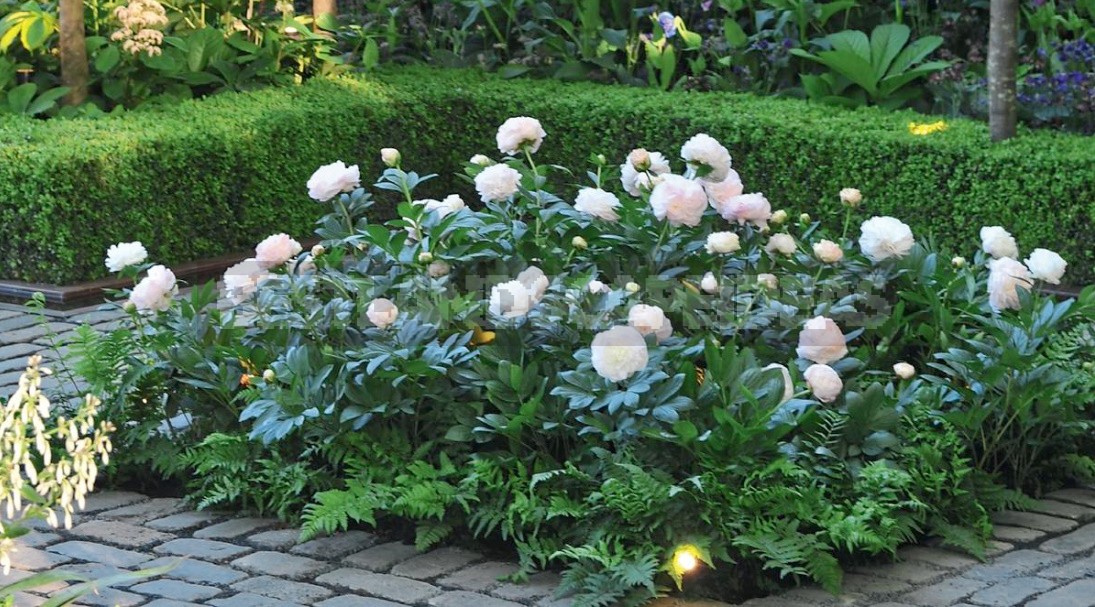
Nothing compares to the luxury of blooming peonies. The palette of colors, shapes and flavors of these flowers allows the gardener to become a real artist. Every year there are new amazing varieties that want to find a place in the garden. How to get the maximum effect from peonies in a flower garden?
1. Commandments for lovers of peonies
To achieve success in growing, follow five simple rules:
- Choose herbaceous varieties and intersectional, or ito-hybrids that will not have problems with wintering;
- Buy only good quality raw materials;
- Plant them in a fertile slightly acidic soil with good drainage;
- Provide plants with at least six hours of direct sunlight and good air circulation;
- Watch out for weeds and remove competing plants.
2. Flowers companion
Many perennials blooming simultaneously with them will serve as a beautiful frame for peonies in the flower garden.
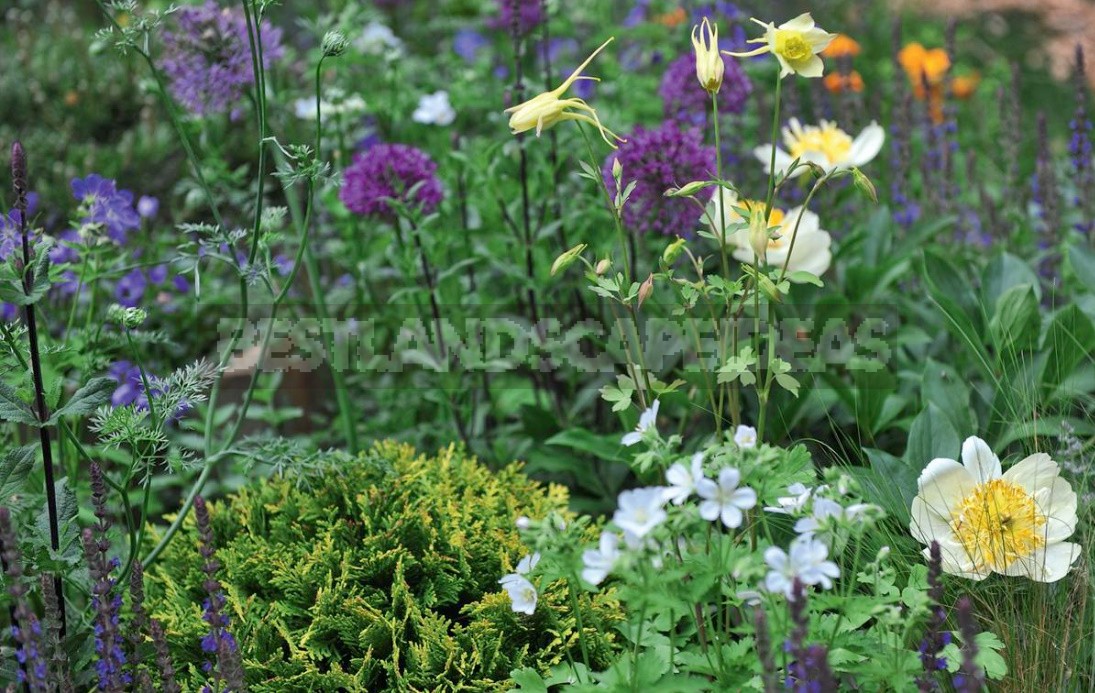
3. Peonies in meadow flower beds
It would seem that luxury peonies are best suited for traditional English mixborders in the cottage garden. However, modern designers working in the new wave style also use peonies in their flower beds, which are more like a blooming meadow. Of course, the case is not Terry varieties, but natural species and hybrids with a simple flower. They will be best combined with cereals and umbrella plants-the basis of modern meadow flower beds.
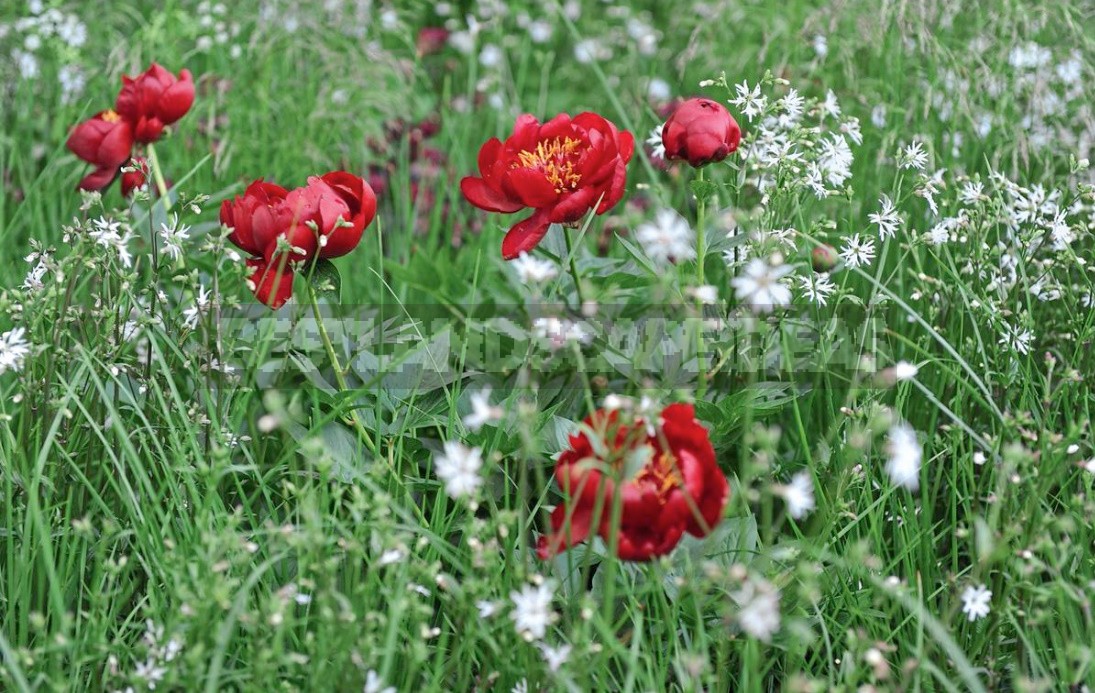
The famous Dutch garden designer Piet Udolf, the founder of the “new perennials” movement, uses species peonies: Paeonia veitchii, Paeonia wittmanniana, Paeonia peregrina, Paeonia officinalis, Paeonia mlokosewitschii, Paeonia tenuifolia, Paeonia emodi. He also has his favorite hybrids, which he considers elegant enough to fit them into a natural garden. These are ‘Bowl of Beauty’, ‘Clair de Lune’, ’Jan van Leeuwen‘, ’Mai Fleuri‘, ’Postillon‘, ’Red Charm’.
4. Peonies and spring bulbs
Small bulbous plants bloom long before peonies. They will help to decorate the empty space that the Bush will later occupy (a powerful adult specimen can cover more than a square meter) and play along with the bright spring peony sprouts. When the finely bulbous ones blossom and their leaves begin to dry up, the beautiful foliage of the peony will cover this unsightly picture.
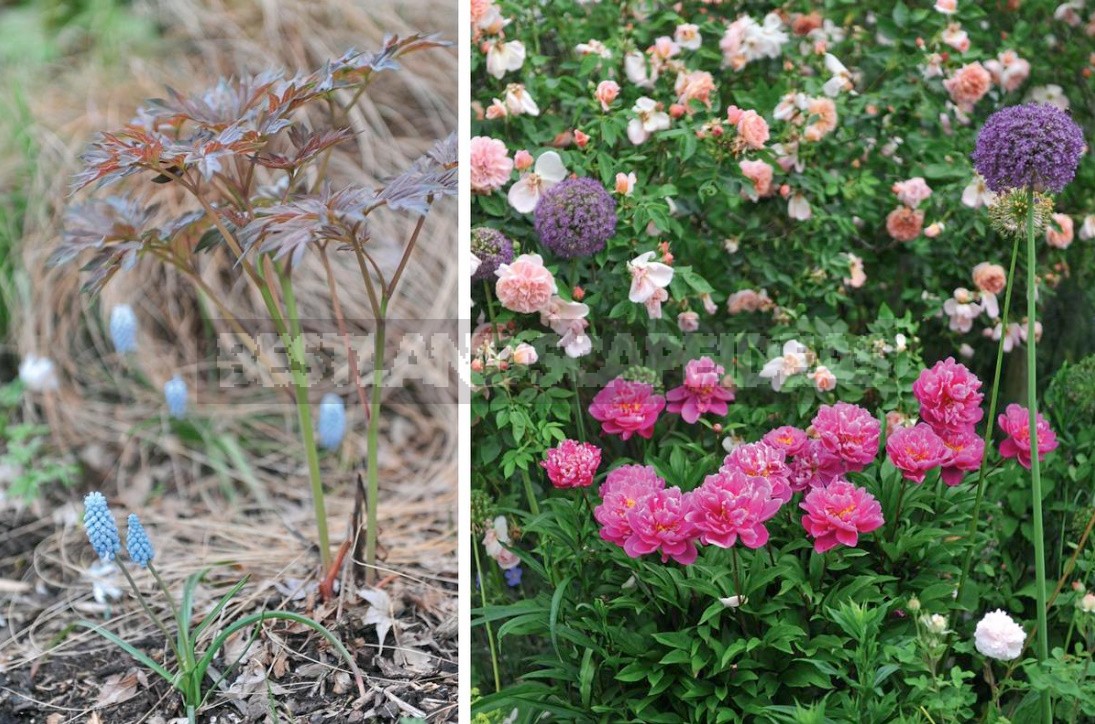
5. Peonies and roses
As in bouquets, in the garden peonies and roses are delightful companions. Scars and climbing roses on obelisks, arches and pergolas will be out of competition as a backdrop for a flower garden with peonies. Neighbors peonies in mixborders can become a modern ground cover roses, floribunda and low.
6. Combine foliage and flowers
Peony blooms are lush and stunning, but relatively short. Therefore, our heroes need to choose such perennials as partners, the peak of decorative effect of which falls on the time before or after the flowering of peonies. This neighborhood is mutually beneficial. The foliage of the partner plants will create a beautiful background for the luxurious flowers of peonies, and the carved leaves of peonies will set off the flowers of these perennials.
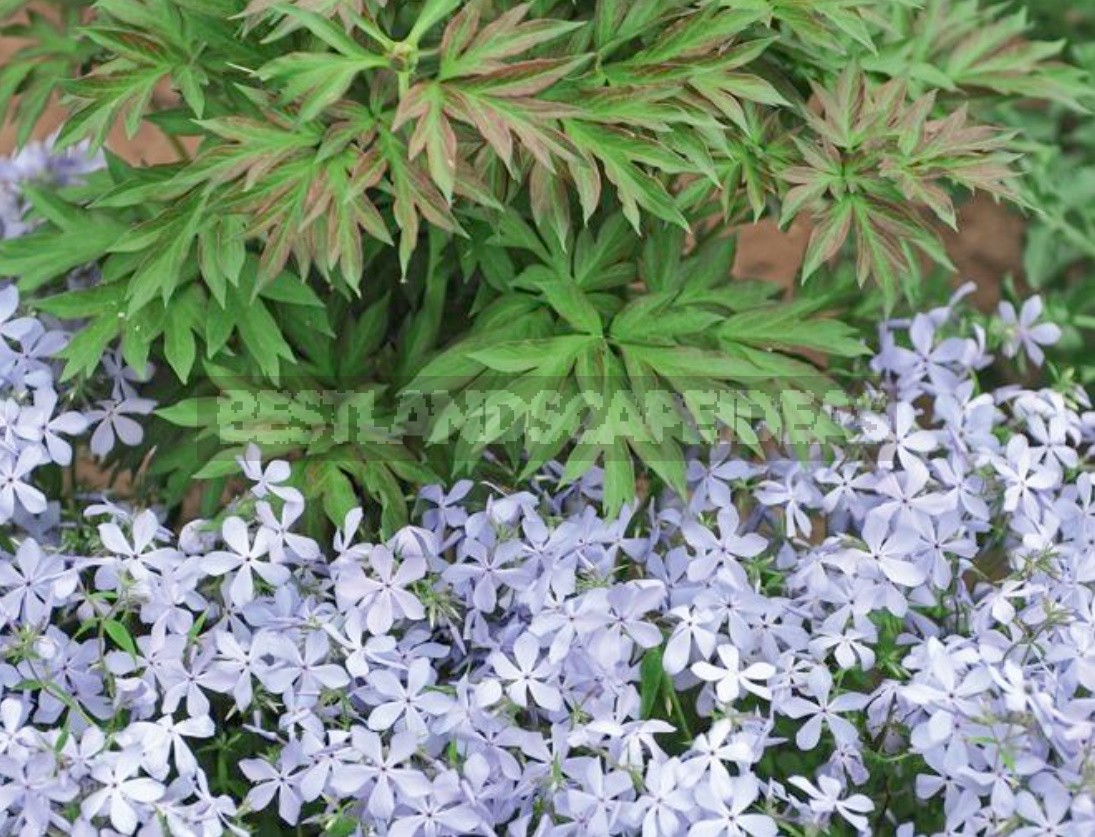
7. Peonies in rockeries
And there are treasures in the stones.
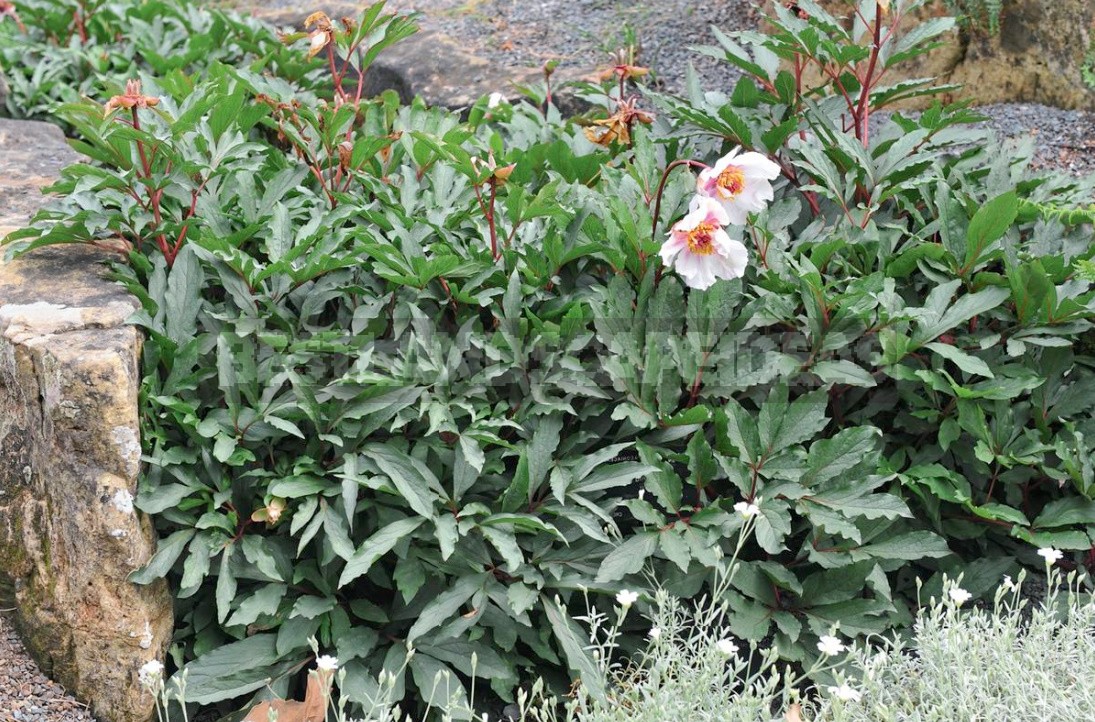
Paeonia tenuifolia with openwork, thinly dissected leaves and scarlet flowers, will decorate any stony flower garden. And in the South, you can try to grow in rockeries and heat-loving Tulipa clusiana.
8. Reliable support
Whether or not peony needs support depends on the variety. Many old double and semi-double cultivars and large-flowered varieties of milk-flowered peony need it, some peonies do without it. If you don’t want extra worries, choose non — mahogany, anemone and Japanese varieties-many of them do not require props. If the support is still necessary, there are several ways to implement it.
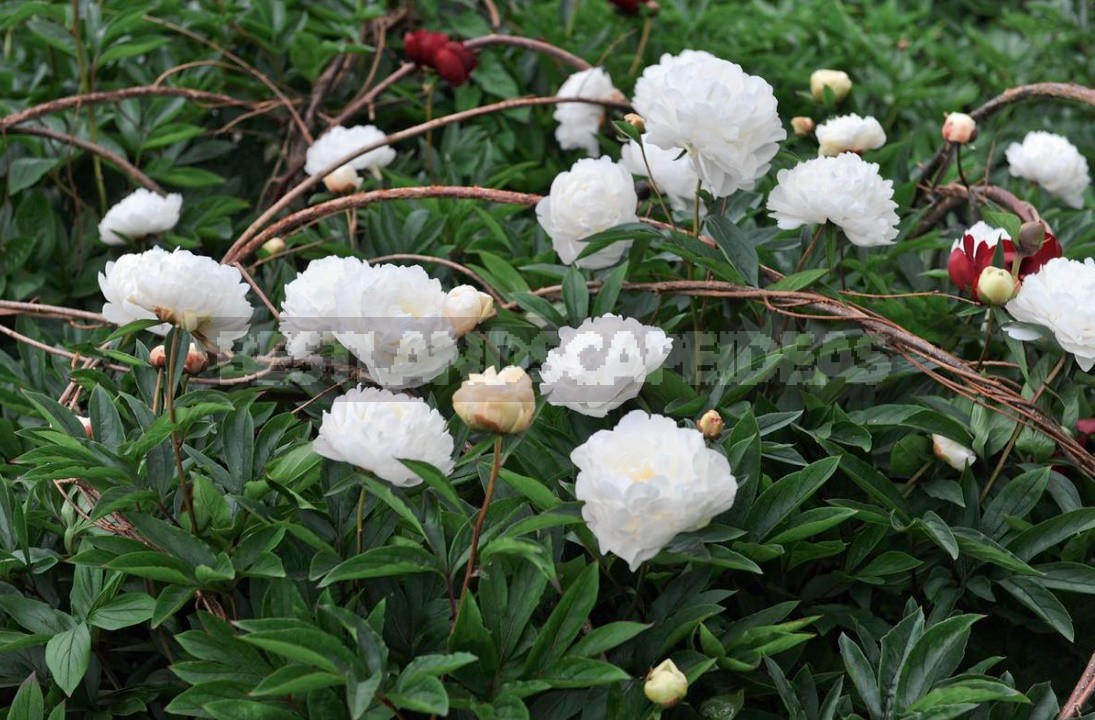
You can buy a ready-made plastic “ring on legs”in the garden center. And even better — a more expensive, but also more reliable and elegant pyramid of rods with rings in several tiers, through which the peony will grow.
A cheap, but very nice option is to use flexible branches of shrubs left after spring pruning for props. In case of special need the individual flowers can be tied up to bamboo sticks and other similar supports.
9. Nipping the buds
This technique is used when you want to grow huge flowers for cutting. These can be boasted even at a flower show. Pinching means removing the side buds on each flower stalk before they reach the size of a pea. This operation will allow the plant to put all the energy into the apical Bud, and the remaining flower will be absolutely irresistible. In addition, the load on the peduncle will be less, and it will be less inclined.
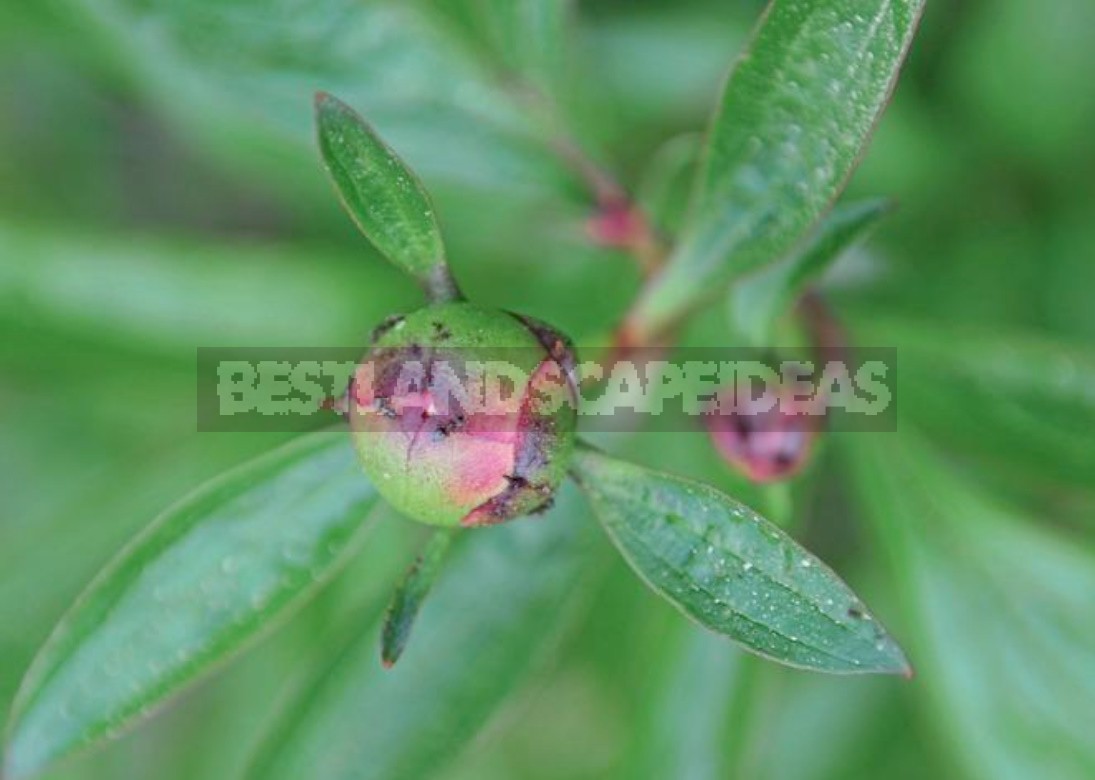
If the side buds are not pinched, the size of the flowers will be more modest, but the flowering time of the Bush is longer. By the way, you can almost always find ants on the buds of peonies. They are attracted by the sweet secret secreted by the peony buds. They do not cause any harm to the plant.
10. Or not to cut off the faded flowers?
Most gardeners choose the first option. Removing faded flowers gives the Bush a much more neat appearance, reduces the likelihood of fungal diseases and allows the plant to not waste energy on the production and maturation of seeds. Wilted flowers are removed by cutting the peduncle over the first trefoil.
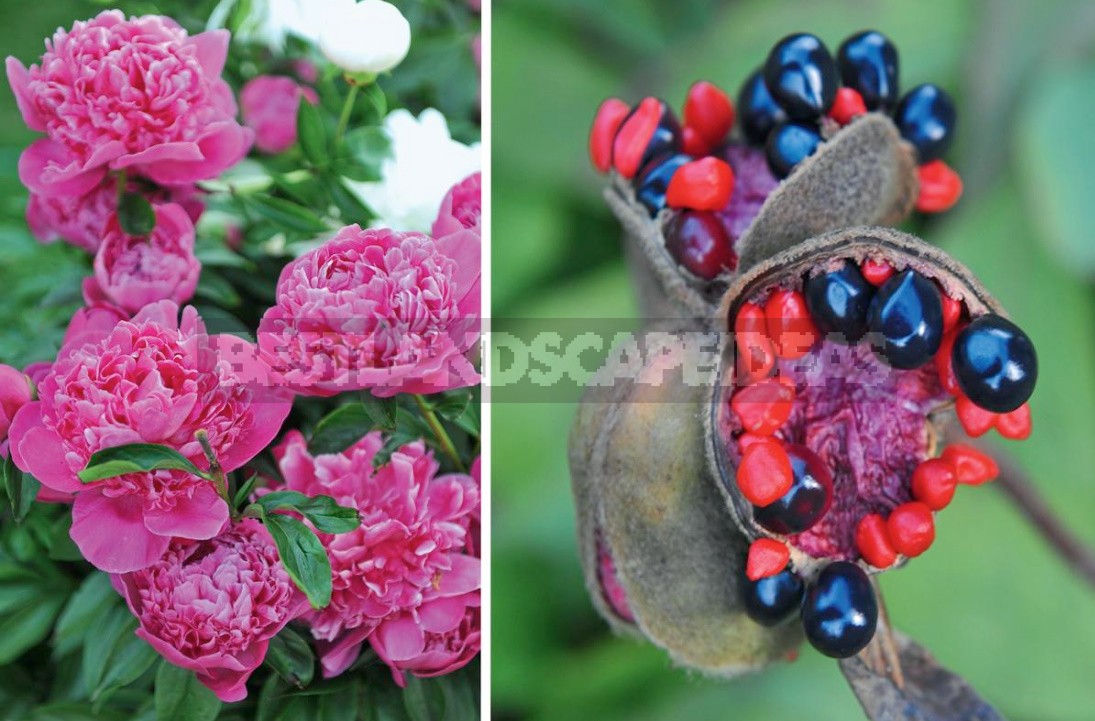
But gardeners who grow species of peonies know that it makes sense to leave everything as it is, and then in the fall they will be rewarded with a magnificent mesmerizing spectacle. Decorative fruits, when ripe, will open and show red and black seeds on a wine-red lining.

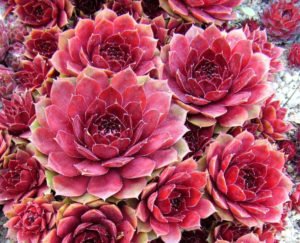


Leave a Reply